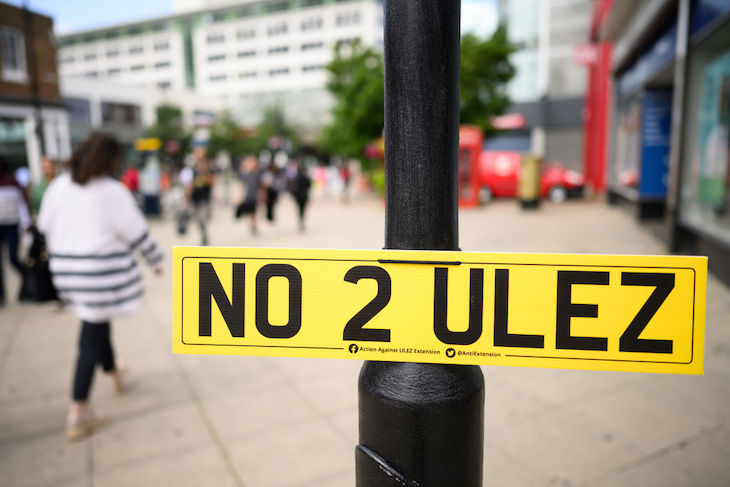It was, to adapt the famous Sun headline from the 1992 general election, Ulez wot won it. The Conservatives’ narrow hold of Uxbridge and South Ruislip was, as Angela Rayner admitted this morning, down to London mayor Sadiq Khan’s dogged determination to inflict a £12.50 daily charge on the drivers of diesel cars more than seven years old and petrol cars more than 15 years old. It shouldn’t have taken much to work out that a highly-regressive tax on the relatively poor was not going to go down well among Labour voters – yet so blinded are many in the party on green issues that they just couldn’t see it. That includes Keir Starmer who two weeks ago told the obvious fib that Sadiq Khan had no choice but to expand Ulez.
But it isn’t just Labour which should be shaken by this result. Paradoxically, although the Conservatives won, the result is a dire warning to them, too. Conservative councils may have led the charge against Ulez expansion by challenging it in the courts, but there are many other green issues on which the Conservatives are similarly exposed.
In Canterbury, for example, it was a Conservative council which tried to push plans for a traffic scheme which would split the city into zones, with large fines for residents who drove from one zone to another. The council leader was thoroughly punished in May’s local elections, losing his seat.
It is government policy to ban pure petrol and diesel cars from 2030, and hybrids too by 2035. That is going to impact on very large numbers of motorists who face having to pay half as much again for a new car – and, if they don’t have a driveway at home, face paying through the nose to use sparse public recharging points. To make up from lost revenue from fuel duty a future government – of whatever colour – will almost certainly have to introduce an unpopular road-pricing scheme. The Conservatives, too, have committed themselves to banning new gas boilers by 2030, which will force homeowners of modest means to spend at least £10,000 fitting a heat pump – and quite possibly some form of secondary heating, too.
Net zero will almost certainly also mean the end of budget airline travel, with flying becoming the preserve of the rich. The plan to eliminate all fossil fuels from the national grid (which the Conservatives want to do by 2035, Labour by 2030) threatens to inflate energy prices as we scramble around from expensive ways of coping with the shortages created by intermittent wind and solar.
So far, the main political parties have satisfied themselves with the opinion polls which show generalised support for net zero. What Uxbridge and South Ruislip shows (as well as more detailed opinion polling, for anyone who is bothered to study it) is that support falls rapidly away when people are exposed to the real-world consequences of green and net zero policies. When people are threatened with extra charges, costs and bans, they rebel.
The Conservatives may be celebrating clinging on to Boris Johnson’s old seat this morning, but they will need to take this result very seriously themselves, too. The spoils in future elections are not necessarily going to go to parties and politicians which reject carbon-reducing policies outright – but they will very definitely go to those who appreciate the financial damage that such policies are capable of inflicting on the household budgets of the poor, and who are prepared to compromise on net zero in order to protect the living standards of ordinary people.







Comments